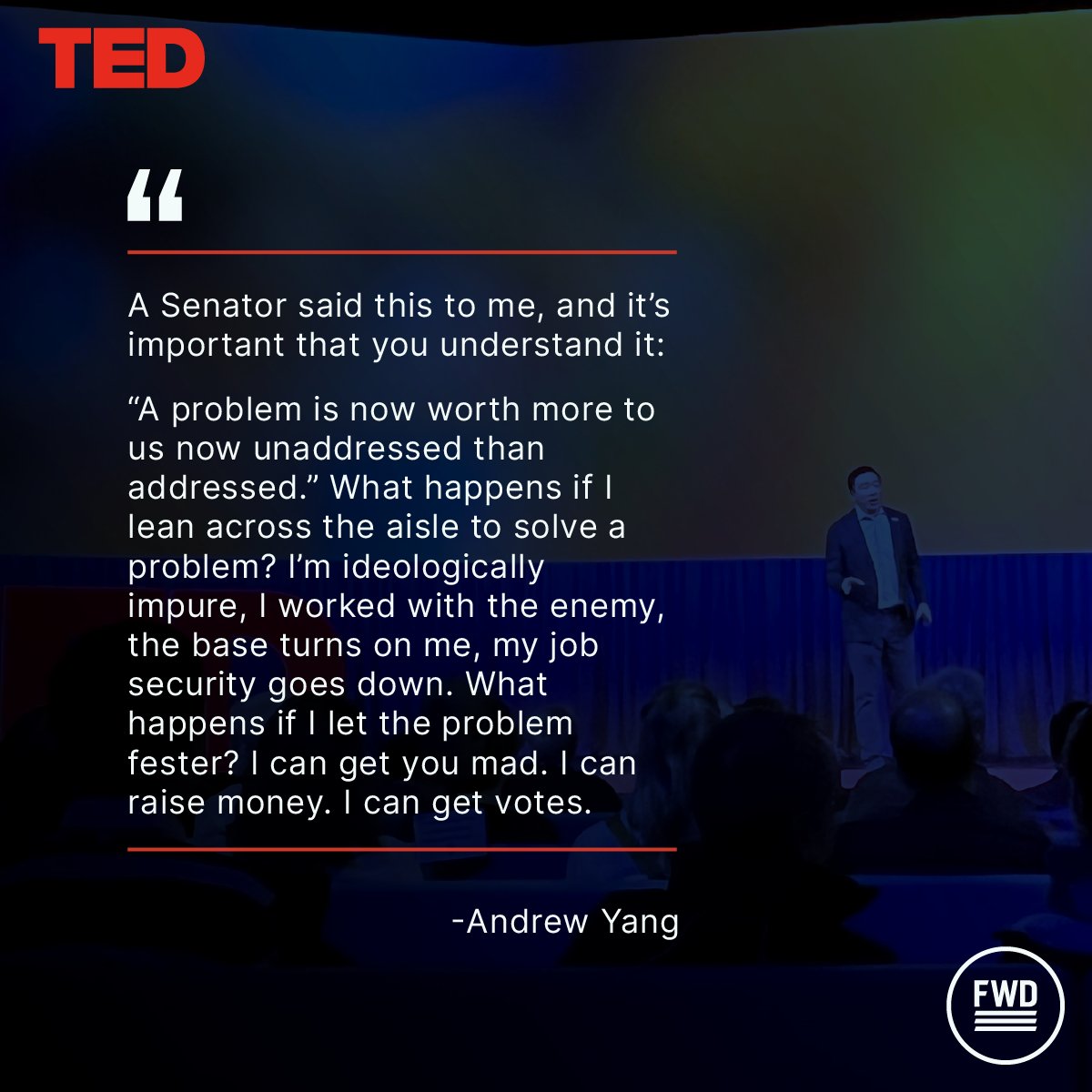Reposted by Andrew Yang🧢⬆️🇺🇸
The statement addresses the issue of political incentives in the U.S. system, highlighting how these incentives can discourage bipartisan cooperation and problem-solving. It suggests that the current political system rewards politicians for perpetuating problems rather than solving them, which is detrimental to effective governance. The statement also links to a TED Talk by Andrew Yang, who discusses the flaws in the U.S. electoral system and proposes solutions such as ranked-choice voting to mitigate extreme partisanship.
- The statement aims to do no harm by promoting a discussion on improving political incentives, which is constructive and beneficial for public understanding. [+2]Principle 1:I will strive to do no harm with my words and actions.
- It respects the dignity of others by focusing on systemic issues rather than personal attacks, contributing positively to the discourse. [+1]Principle 2:I will respect the privacy and dignity of others and will not engage in cyberbullying, harassment, or hate speech.
- The statement promotes understanding and compassion by explaining how current incentives negatively impact political decision-making and public trust. [+2]Principle 3:I will use my words and actions to promote understanding, empathy, and compassion.
- It engages in constructive criticism by identifying problems and suggesting viable solutions, fostering a dialogue on electoral reform. [+2]Principle 4:I will engage in constructive criticism and dialogue with those in disagreement and will not engage in personal attacks or ad hominem arguments.
- The use of a public platform to discuss electoral reform shows an effort to use influence for societal betterment. [+2]Principle 6:I will use my influence for the betterment of society.
- The statement upholds principles of free speech responsibly, using the platform to discuss substantive issues rather than for personal gain or misinformation. [+2]Principle 7:I will uphold the principles of free speech and use my platform responsibly and with integrity.
